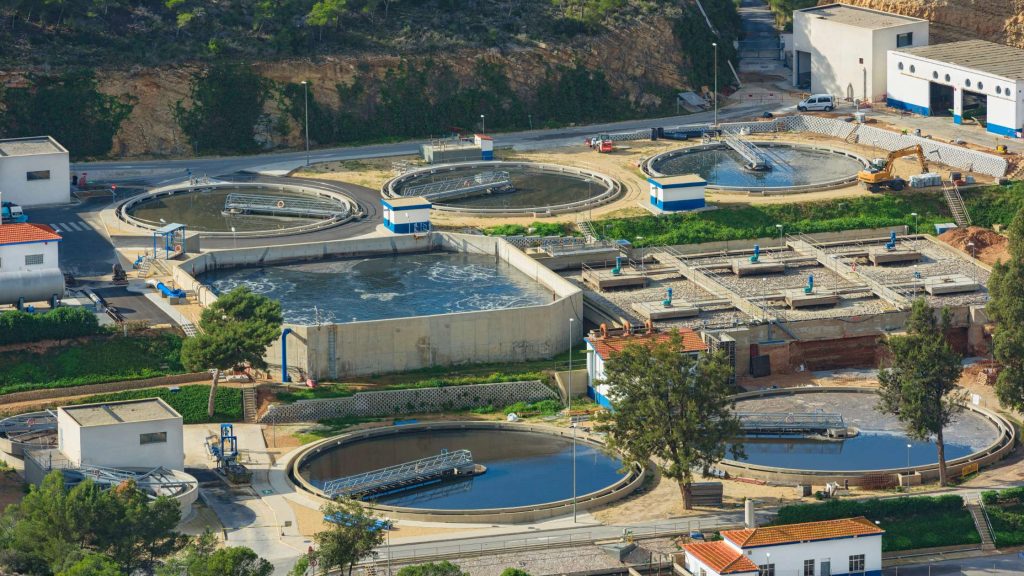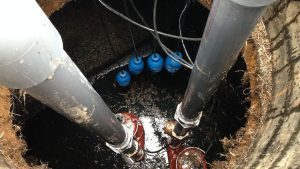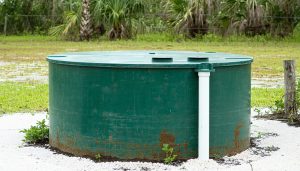Did you know that tertiary treatment can remove over 99% of impurities from wastewater? This advanced stage is essential for meeting environmental standards, particularly in areas facing water scarcity. You may wonder how this process works and why it is so important. Techniques like membrane filtration and UV disinfection can transform wastewater into valuable resources. But what makes these methods so effective?
Exploring the details of tertiary treatment highlights its role in protecting ecosystems and supporting sustainable water management. Understanding these processes may change your perspective on the importance of water in our environment.
What is Tertiary Treatment?
Tertiary treatment is the final and essential stage in the wastewater treatment process. Its purpose is to refine the effluent to a high quality, ensuring it meets strict treatment standards. This stage is crucial for ensuring the effluent is safe for discharge or reuse.
It is important to appreciate the meticulous focus on removing contaminants, which eliminates residual nutrients, pathogens, and heavy metals. This precision in managing nutrients is vital for reducing the risks of eutrophication and protecting aquatic ecosystems.
Tertiary treatment is pivotal in safeguarding public health by removing harmful pollutants that could otherwise contaminate water supplies. Moreover, it bolsters environmental protection efforts by preventing contaminants from entering natural water bodies.
Significance of Advanced Treatment
Though often overlooked, advanced treatment in wastewater management is critical for addressing complex contamination issues that standard processes can’t handle.
You’re dealing with advanced filtration methods that capture microscopic pollutants, ensuring cleaner and safer water.
Biological nutrient removal tackles excess nitrogen and phosphorus, preventing harmful algae blooms.
Chemical disinfection techniques are pivotal in eliminating pathogens and safeguarding public health.
With emerging technologies, you can meet stringent regulatory compliance challenges, ensuring your operations align with environmental standards.
These sophisticated approaches enhance the quality of treated water and support sustainable practices.
Techniques in Wastewater Treatment
Wastewater treatment employs a variety of techniques to effectively purify water and protect the environment.
You’re about to explore some key methods that make this possible:
1. Membrane Filtration: This process uses ultrafiltration or reverse osmosis systems to remove microscopic contaminants, ensuring water is free of suspended solids and pathogens.
2. Chemical Coagulation: By adding chemicals, pollutants can clump together, making them easier to remove. This step is crucial for eliminating fine particulates and improving water clarity.
3. Biological Removal: Specialized bacteria break down excess nutrients like nitrogen and phosphorus, enhancing water quality through bioaugmentation methods.
4. UV Disinfection: This technique eradicates bacteria and viruses without leaving harmful byproducts, providing a safe, chemical-free solution for pathogen removal.
These techniques collectively ensure the high-quality treatment of wastewater.
Innovations in Treatment Processes
Advancements in wastewater treatment techniques have paved the way for innovative processes that significantly enhance efficiency and sustainability.
Investigate new technologies that utilize bioaugmentation methods, which involve introducing specialized bacteria to effectively break down contaminants. These methods enhance efficiency, decrease the reliance on intensive chemical treatments, and improve nutrient removal optimization.
By implementing sustainable practices, you’re conserving resources and aligning with regulatory advancements aimed at stricter environmental standards.
These innovations ensure that wastewater treatment processes are more effective and environmentally friendly. By adopting these cutting-edge solutions, you’ll contribute to a more sustainable future in which wastewater is treated with precision, ultimately protecting public health and preserving natural ecosystems for future generations.
Advantages of Tertiary Treatment
Tertiary treatment of wastewater provides numerous benefits that are essential.
Enhancing effluent quality ensures that the water is safe for the environment and suitable for industrial reuse. This process minimizes the need for additional chemical treatments, resulting in long-term cost savings.
Another crucial benefit is protecting public health, as tertiary treatment effectively removes harmful pathogens and contaminants. Nutrient removal plays a vital role in preventing water pollution and preserving ecosystems.
Here’s a snapshot of the key advantages:
1. Effluent Quality: Produces high-quality water fit for various uses.
2. Cost Savings: Reduces chemical and operational expenses.
3. Public Health: Eliminates harmful pathogens.
4. Nutrient Removal: Prevents ecosystem damage and supports sustainability.
Preserving Water, Elevating Standards: South Florida Lift Station’s Commitment to Excellence
Tertiary treatment is crucial in wastewater management for creating clean water and protecting our water resources for the future. South Florida Lift Station has the expertise to provide excellent lift station services that boost the effectiveness and reliability of wastewater systems. We use advanced methods like UV disinfection and membrane filtration to reduce pathogens by over 99%, ensuring cleaner water for nature and public use.
Our commitment to excellence means that we embrace cutting-edge technologies and prioritize customer satisfaction. South Florida Lift Station understands the challenges posed by global water scarcity and is dedicated to making every drop count. Through our expert services, we empower clients to contribute to sustainable wastewater management and protect our planet’s precious water resources.
Partner with us to experience the difference that expertise and innovation can make. Together, let’s elevate standards and secure a cleaner, more sustainable future.







